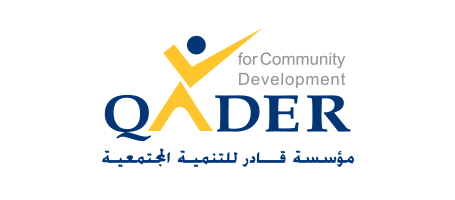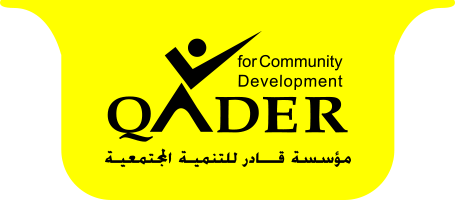Disability Rights Monitoring & Promotion

Background:
At the end of 2010 the “Disability Rights Monitoring & Promotion – DRMP” initiative was launched as part of QADER’s programmes that aims to improve the conditions and realities of the lives of persons with disabilities, to achieve justice and descent life for them in all field of life in accordance with international and national human rights standards.
The purpose of this project is to popularize, disseminate, promote and establish a human rights culture among persons with disabilities and the relevant authorities which are supposed to maintain and preserve those rights and apply them to the Palestinian community in general. Through this initiative, a training on monitoring and documenting violations and reports containing statistics and facts about the situation of the rights of persons with disabilities in the areas of project work (Bethlehem, Hebron, Jericho) in the West Bank was conducted.
Project objectives:
- Aspiring to improve the status of persons with disabilities rights in Palestine.
- Educate people with disabilities about their rights in accordance with the international and national standards, and the types and size of violations they are exposed to, if existed.
- Promote a culture that combats violations and a devote awareness and community behavior in favor of protecting the rights of persons with disabilities.
- List the rights of persons with disabilities protection in the strategic plans of ministries and top priority of officials and decision makers in the Palestinian Authority areas.
Target groups:
- First category: Persons with Disabilities in general; all ages, social strata, and gender, especially violated people, in the areas of Hebron, Bethlehem and Jericho.
- Second Category: Interested parties and representatives of relevant institutions and centres, civil society organizations that work with Persons with Disabilities, Human Rights defenders and Persons with Disabilities who will participate in training activities.
Target areas:
QADER implemented the project in three main geographical areas: Bethlehem Governorate, Hebron Governorate, and Jericho Governorate.
Rights monitoring: Importance & Function
The importance of monitoring the rights of persons with disability and the violations they face, is being an effective tool to collect data about the corruption in the practical practices, legislations, regulations, service programs and social media. Which ensures the conditions of planning and implementing the successful legal intervention, to enhance the living conditions of persons with disabilities in the different fields. The importance of monitoring is illustrated in the following:
- Reveal the living conditions of persons with disabilities, and their political, economic, cultural, civil and social rights.
- The diagnosis of the violations they face according to the national and international standards in all fields.
- Assist in the development of appropriate solutions to reduce the violations they face.
- Assist in identifying priorities, and plan programs, projects and activities related to persons with disabilities.
- Assist in detecting the influence and effectiveness of the administrative and structural infrastructure of the various institutions on the lives of persons with disabilities.
- Assist in empowering persons with disabilities and enhance their confidence in the legal and social system, and community support to their rights.
- Assist in ending and reduce the violations persons with disabilities face.
- Encourage people to confront the violations that face persons with disabilities, reveal and document them.
- Assist in detecting and diagnosing of the laws, policies, regulations, and procedures weaknesses and malfunctioning, and highlight them.
- Assist in detecting the need of new legislations and regulations to enable the legislative counsel and stakeholders to draft and amend quality laws consistent with the international conventions that protects persons with disabilities from violations.
- Assist in preparing plans that institutionalize the services and individual and collective rights of persons with disabilities.
- Assist persons with disabilities movements to identify their priorities, action plans and projects, including the awareness and advocacy activities to influence decision makers to ensure the law implementation.
- Identify methods, mechanisms, action means, and social, psychological and legal intervention with violated people.
- Facilitate the detection of the strength and weakness of media’s role, and its influence, and the devotion of human rights or anti-human rights culture.
- Develop appropriate media strategies consistent with the nature of the rights conditions and the violations against persons with disabilities.
- The ease of leading the media to have an awareness role to stakeholders and disabled people interested in disability.
- Assist in leading media to have a supportive role in campaigns that demand the change and amendment in laws, procedures and service programs.
- Facilitate the recognition of media’s attitudes towards human rights, and its role in promoting them.

